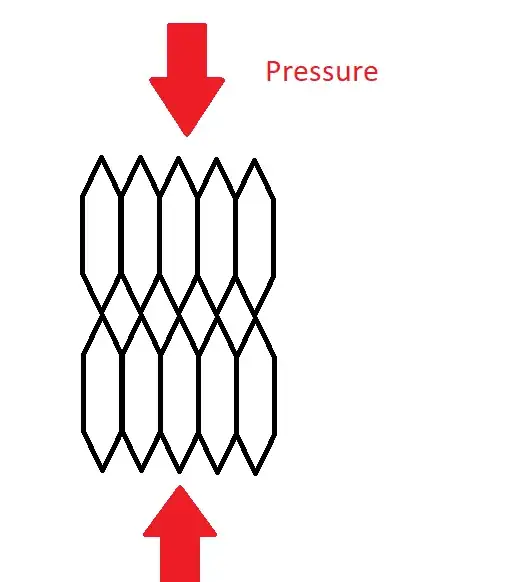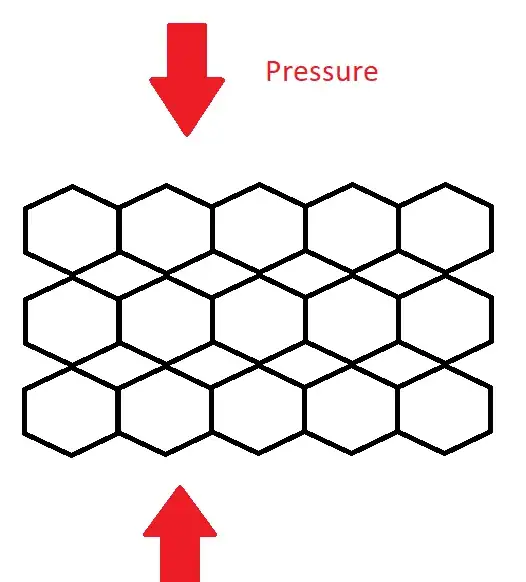Is it possible that a material may become less dense as more pressure is applied, without a phase transition?
My initial layman thought is no because it seems to me that "density" is a form of "pressure" within a material (I know this to be true at least for gasses). However some materials do exhibit unintuitive properties, such as becoming less dense when solidifying. In the specific case of water, at some temperatures increasing the pressure on water will turn it into a solid. Other unintuitive material properties include water (yet again) becoming less dense as temperature decreases be below 4°, and fluids which lose viscosity under increased pressure. So maybe there is chemistry for a material that expands (becomes less dense) as pressure is applied.
To be clear, this question can be phrased as: Is there a material which expands as pressure is applied?

